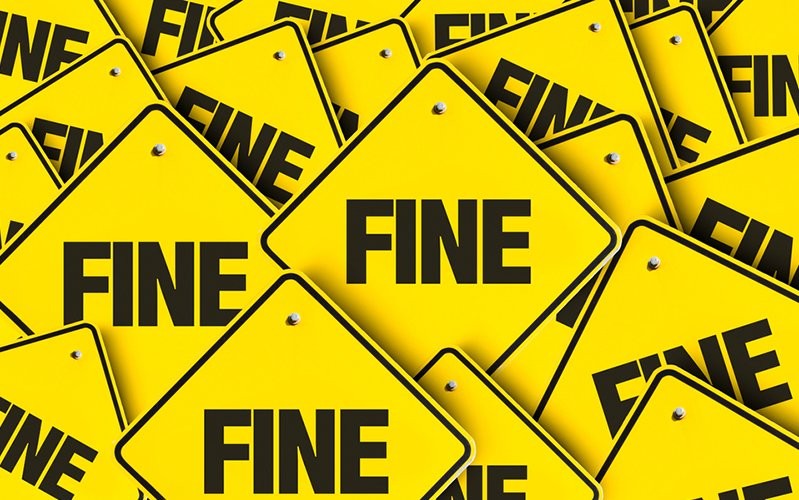BLOG
HSE criticised for using debt collection firms to carry out COVID-19 spot checks

Staff from private sector firms have been carrying out COVID-19 workplace spot checks on behalf of the Health and Safety Executive (HSE) – for the first time in its history.
In an attempt to bolster its workforce during the pandemic, in December, the HSE awarded contracts worth a total of £7 million to two debt-collection firms, Marston Holdings and CDER. The £7 million is the single largest spend from the £14 million emergency funding awarded to the HSE by the government last year for COVID-related enforcement.
The debt-collection firms’ operatives, known as “spot-check support officers”, carry letters saying they are authorised to carry out site inspections. On in-person visits, the operatives are only warranted to look at COVID security arrangements, such as masks, sanitation, two-metre segregation and bubble arrangements. They cannot take any enforcement action or issue a Fee for Intervention (FFI) notice – apparent breaches are referred to the HSE for further action.
As of 1 March 2021, an HSE spokesperson said “support officers” had carried out 44,000 spot checks at business premises across all industries and all areas of Great Britain. The HSE says the chosen firms have “extensive field forces” in England, Scotland and Wales and have worked for organisations “across the public sector”. The regulator stresses that the firms were selected on the basis of “their skills, infrastructure, staff and expertise”.
However, Prospect, a union representing HSE inspectors, has criticised the move. The union says the support officers are an inadequate replacement for personnel the HSE has lost over the last decade as a result of budget cuts. The use of private firms to carry out “COVID secure” assessments is also being questioned by employers and their legal advisers, with concerns that staff at the debt collection firms are not best qualified for the role. Indeed, the selected firms are normally contracted by local authorities, the courts, landlords, utility services and others, to enforce payment of assorted civil debts, from court judgments and parking fines to unpaid bills.
The HSE is also understood to have hired services provider Civica to run a telephone-based “spot check” service and COVID-19 hotline for reporting alleged guidance breaches.
Do you need support?
Speak to us for an honest, no obligation chat on:
0345 226 8393 Lines are open 9am – 5pm
Never mind the quantity – what’s the quality?
The number of spot inspections has notably increased this year. However, Nick Wilson, Director of Health & Safety Services at Ellis Whittam, believes the focus should be on the quality rather than quantity of the checks. Like many health and safety professionals, he fears that the outsourced hires don’t bring the same rigour to the checking role as HSE inspectors historically have.
As a former HSE inspector himself, Nick says: “You can’t reasonably expect debt collection firms to be a substitute for all the years of experience that qualified HSE inspectors have. While clients are undoubtedly seeing more HSE visits, many are commenting that they are not as rigorous as previous HSE inspections.”
This sentiment has been echoed by General secretary of Prospect, Mike Clancy. Labelling the private firm inspections, “low quality tick-box checks”, Mr Clancy says they further highlight the extent to which cuts have plagued the HSE since 2010. Indeed, the number of:
- HSE inspectors fell from 1,342 in April 2010 to 1,059 “inspectors and visiting inspectors” in 2019/2020.
- Court cases brought by the HSE fell from 711 in 2015/16 to just 355 in 2019/20.
Mr Clancy comments that the £14 million emergency funding isn’t going to be enough and that “A world-class safety regime cannot be delivered on the cheap”.
The HSE’s outsourcing comes at a time when it faces a financial shortfall due to the pandemic. The HSE’s annual report cautions that the crisis will have a “material” effect on its income – from FFI and providing services to other enforcement agencies such as DEFRA.
Meanwhile, the HSE has defended the move, claiming: “The introduction of proactive spot check calls and visits during the pandemic has allowed us to significantly scale up our proactive work to check, support and advise businesses on the implementation of the Public Health Safer Workplace guidance whilst supporting local authorities and the sectors they regulate, and responding rapidly to local outbreaks.”
The regulator adds: “A key benefit of this approach is that it allows our highly experienced inspectors to focus on more complex COVID-19 work, in addition to investigating reported concerns and investigating incidents”.
Ian Harvey, Head of Compliance, GFM Ltd
Not confident in your compliance?
No matter who’s conducting them, HSE spot checks can be daunting, and it’s best to plan ahead. At Ellis Whittam, we help employers to put in place all the necessary arrangements required under law, and will work with you to maintain compliance through ongoing support and award-winning software. That way, you can not only keep people safe but also dramatically improve your chances of a pain-free inspection.
Sign up for the latest news & insights
Resources
Latest News & Insights

Hiring strategies to overcome the effects of rising unemployment in the UK
BLOG Written by Danielle Fargnoli-Read on 25 February 2026 Unemployment has crept up to its highest level in almost five years, with official figures now

Language of appreciation at work | Why individual motivation matters
BLOG Written by Becs Bridge, Director of Learning & Development, on 23 January 2026 In today’s competitive talent market, the organisations that retain top performers

Recruitment trends 2026 | 7 things to expect when hiring this year
BLOG Written by Danielle Fargnoli-Read on 22 January 2026 If there’s one thing recruitment has taught us over the past few years it is that

Breach of employment contract | What employers need to know to avoid Tribunal claims
BLOG Written on 15 January 2026 Breach of contract is a common concern for businesses, particularly during resignations, dismissals, or disputes over pay, notice, or

When does the Employment Rights Bill 2025 come into effect?
BLOG Written on 19 December 2025 It’s been the most talked-about topic in HR in 2025 and the question everyone’s been asking is, “When is

Workforce planning | Structuring your business for success
BLOG Written by Danielle Fargnoli-Read (updated 5 February 2026) Strategic workforce planning is a vital business process that’ll align your organisational needs with long-term goals.

Changes to day one unfair dismissal rights | New six-month protection explained
BLOG Written by Patrick Carroll-Fogg on 1 December 2025 Of the almost 75 individual tweaks and changes set to be introduced under the Employment Rights

Breaking down the Budget 2025 for employers
BLOG Written by Daniel Rawcliffe on 27 November 2025 The recently announced UK Budget 2025 is a challenging one for small businesses. While it covers

AI for interviews with job candidates | Balancing technology with a human touch
BLOG Written by Danielle Fargnoli-Read and Tracey Burke on 21 November 2025 Businesses using AI for interviews are reshaping the way UK businesses approach hiring,



